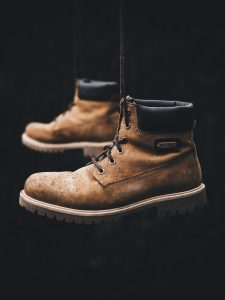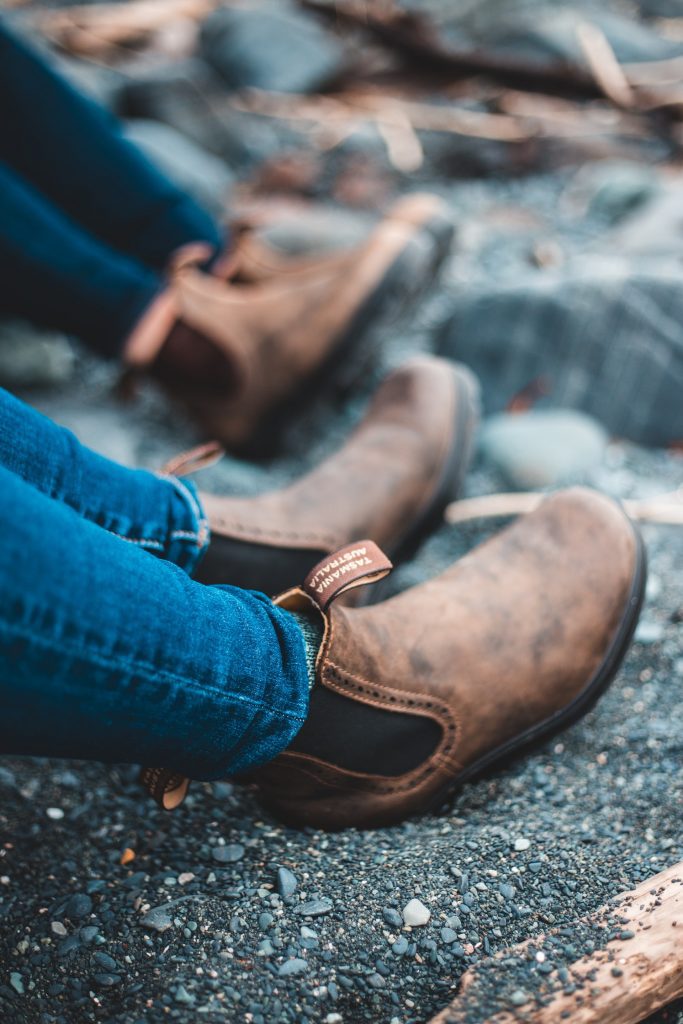There are few things more frustrating than trying on a pair of shoes that fit well only to have them constrict your feet and put needless stress on your joints. And, sadly, this is something that can happen to anyone, regardless of their footwear knowledge or experience. If you’re anything like the majority of people who have struggled with having good-fitting boots in the past, you’ll be happy to know there’s a solution: ironworker boots. In this article, we will provide you with a comprehensive ironworker boot review so you can make an informed decision about which pair is right for you. We’ll also discuss some common issues and how to solve them. So, whether you need new boots for work or just want a better pair for leisure time, read on to learn all you need about ironworker boots.
Ironworker Boots Overview
Ironworker boots are designed to protect the feet and legs of those who work with metal. The boots vary in style, fit, and protection.
Some general features of ironworker boots are:
-They are made from leather or other strong materials and have a flexible sole for good foot movement.
-The boots provide good protection from cuts and scrapes, as well as debris and other objects that may be thrown at the feet or legs.
-They come in various styles to suit different needs, such as steel toe caps for extra protection, slip-resistant soles, and waterproofing.
When choosing ironworker boots, it is essential to consider your specific requirements. For example, if you work with heavy equipment or regularly step on objects that could damage the boot, you should consider purchasing a pair of heavy-duty boots. If you suffer from cuts or bruises easily, choose a pair of lightweight boots that offer less protection against injury. Ultimately, it is essential to try various styles of boots to find ones that fit comfortably and provide the necessary safety precautions.

Ironworker Boot Sizes
Ironworker boots come in a variety of sizes and styles to fit nearly anyone. The most important thing to remember when selecting ironworker boots is to measure your feet carefully.
The Ironworker Boot Company offers a wide range of boot styles and sizes, from men’s 9 through 14, to women’s 5 through 12. There are also half sizes for those with narrower feet or who want a little more wiggle room in the toe box.
To find your correct size, divide your US shoe size by 2. That number is the equivalent of European foot size (EUR). For example, if you wear a US size 8½, you would wear an EU size 43 (8/2=43). To order your boots online, enter your foot measurements in the “Size and Style Questionnaire” on the Ironworker Boot Company website.
Once you have chosen your style and size of the boot, be sure to read our detailed reviews of each style below for advice on selecting the best pair of ironworker boots for your needs!

Ironworker Boot Brands
Ironworker boots, also known as leatherworker boots or riveter boots, are a type of safety footwear used by workers in the construction and manufacturing industries. They are made from leather or other materials and provide good protection for the feet and legs when working with heavy tools or equipment.
Today, there are many brands of ironworker boots available on the market. When choosing an ironworker boot, you must consider your specific needs and requirements. For example, some brands are better suited for those in cold climates, while others are better for those in warmer temperatures. You should also consider what type of boot you need: a low-cut or high-cut boot.
Some factors to consider when choosing an ironworker boot include the following:
1) Protection – Ironworker boots should provide reasonable protection against cuts, scrapes, and bruises while working.
2) Dexterity – Ironworker boots should be comfortable enough to allow you to move your feet quickly while wearing them.
3) Cushioning – Ironworker boots should offer good cushioning so that you can wear them for hours at a time without experiencing pain or discomfort.
4) Breathability – The material used in ironworker boots should allow air to flow freely through the shoe so that your feet don’t become overheated.
5) Durability – Ironworker boots must be durable enough to withstand constant use and abuse from heavy tools and
The Different Types of Ironworker Boots
Ironworker boots are designed to protect workers’ feet in various environments. The different types of ironworker boots include steel toe, slip-resistant, insulated, and water-resistant.
Each type of boot has its own set of benefits and drawbacks. For example, steel-toe boots are generally the most protective and are used for jobs that involve working with weighty materials or under challenging environments. However, they can be uncomfortable and restrictive to wear for long periods. Slip-resistant boots are less protective but are easier to wear for extended periods due to their rubber grip. Insulated boots are designed to keep the foot warm in cold weather but don’t offer as much protection against debris or debris from falls. Finally, water-resistant boots help protect against wet surfaces but are less effective against snow or rain.
When choosing an ironworker boot, it is essential to consider the specific job requirements and the worker’s personal preferences. Ironworker Boots Reviews provides a comprehensive overview of each type of boot so workers can find the best option for their needs. Learn more about Shoe Kream
The Benefits of Ironworker Boots
Ironworker boots are designed specifically for those in the construction industry. They are made of high-quality materials and provide many benefits to those that wear them. Ironworker boots help protect feet from falling objects, heat, and other hazards. They also help keep feet stable while working, preventing fatigue and injuries. Ironworker boots are available in various sizes and styles to fit anyone’s needs.
The Disadvantages of Ironworker Boots
Ironworker boots are often seen as one of the essential safety gear for a construction worker. But are they really worth it? Here are some of the disadvantages of using ironworker boots:
1. Poor Durability
Ironworker boots are not known for their durability. Many times, they will tear easily, which can lead to injuries. It is important to find boots built to last, so you don’t have to worry about replacing them constantly.
2. Heavy Loads
One of the most significant disadvantages of ironworker boots is that they can be cumbersome when carrying a heavy load. It can lead to fatigue and other problems down the road. If you’re struggling with your feet and legs after a long day on the job, switch to another type of boot.
3. Cold Weather Conditions
Because ironworker boots are made for cold weather conditions, they can get freezing and uncomfortable in colder climates. It can cause several problems, including frostbite or pneumonia if you’re not adequately dressed for the weather conditions. It’s important to find boots that will make you more comfortable in any weather condition, no matter how cold it is outside!
Conclusion
So, what do you think about our Ironworker Boots review in 2022? Do they look like the perfect choice for your next work outfit? Let us know in the comments below!

